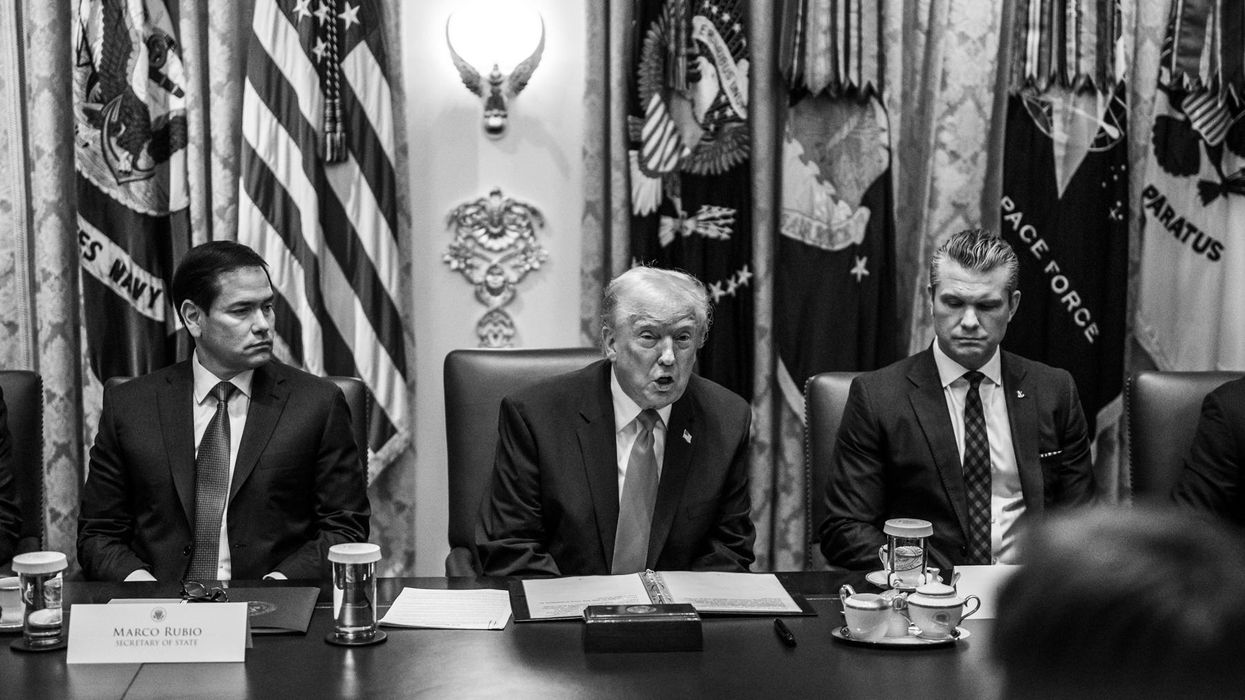What is conservative statecraft? It should be an approach to international affairs that prizes prudence, caution, and an inclination to mind our own business, but that is very different from the “conservative statecraft” outlined in a recent Foreign Policy article by Nadia Schadlow, who worked for the neoconservative Smith Richardson Foundation during the George W. Bush Administration and later in President Trump's National Security Council.
The article is an exercise in wrapping up standard Republican hawkishness in the mantle of traditional conservative principles. That’s not surprising, but it isn’t persuasive because it isn’t true.
The four principles she identifies (“liberty, sovereignty, competition, and power”) are either not uniquely conservative nor necessarily conservative at all. The last one with its emphasis on a strong military is a militarist principle. There is a long conservative tradition in this country that sets itself against militarism for moral and political reasons even when that militarism dresses itself up as defensive. If we assume that liberty and empire are incompatible, as John Quincy Adams did, then the perpetuation of an imperial foreign policy is antithetical to the preservation of constitutional liberty.
The maxims of U.S. policy can be those of force or they can be those of liberty, but they cannot be both at the same time.
She also says that “a respect for national sovereignty is central to the preservation of liberty and maintenance of a stable international order,” but one of the hallmarks of modern Republican and movement conservative foreign policy thinking has been contempt for the sovereignty of other states and a willingness to sow instability and disorder in the name of American “leadership.” Whether that has come in the form of coups or illegal wars, the record is one of recurring interference and the use of force to compel other states to fall in line.
A conservative foreign policy should respect national sovereignty, and that begins by refusing to interfere in the internal affairs of other states. Noninterference and nonintervention were the defining features of American foreign policy for the first half of our history as a republic. As we have abandoned those principles, we have steadily lost the republic that we are supposed to be preserving.
Schadlow says that “[s]upport for grassroots movements seeking liberty is neither cultural aggression nor militarism,” but this ignores that outside support for such movements is frequently counterproductive and unwanted by the very people that it is supposed to be “helping.” Whatever else it is, it is meddling in the affairs of other countries that Americans don’t understand very well. Because we don’t understand these places very well, our interference will be clumsy and destructive in most cases.
Inserting the U.S. into the middle of someone else’s political crisis is dangerous for protesters for what should be obvious reasons, and it is still a form of unilateral intervention that can lead to unforeseen and unintended consequences. As a rule, conservatives should not be looking for ways to destabilize other countries because they understand how fragile order can be and how devastating the breakdown of order is to the well-being of the people living there. Conservatives should understand more than most that liberty does not thrive in the middle of brutal struggles for power and stoking conflicts in other lands is a recipe for fanaticism and atrocities.
Schadlow namechecks Russell Kirk and Edmund Burke, but she does this in the service of a globe-spanning foreign policy that has little or nothing to do with the virtues of prudence and wisdom that those men championed. The only thing that this “conservative statecraft” will conserve is the military-industrial complex with the ever-larger budgets that her proposals require.
Kirk himself listed several conservative principles, including one that said that “the conservative perceives the need for prudent restraints upon power and upon human passions.” That implies that conservatives should seek to limit the power of the warfare and surveillance state and to check the passions that have so often led the country into unnecessary wars. If we pay attention to what conservative principles require, we cannot subscribe to the “conservative statecraft” described in this article.
Any review of U.S. foreign policy has to begin with a careful assessment of its current costs and burdens. Conservatives can help in this debate by cutting through ideological delusions that warp our government’s understanding of the world and to challenge the reckless excesses that impose unnecessary costs on the American people and the rest of the world.
We can all see that the U.S. is overstretched because of its many overseas commitments, and the belated end to some of the failed wars has not solved this larger problem of overcommitment. It may not be advisable or practical for the U.S. to scale back its commitments everywhere, but it must start scaling them back somewhere or else it will risk strategic bankruptcy.
Our government’s over-investment in the Middle East stands out as a good place to begin in making long overdue cuts. True conservatives, then, can help lead the way in paring back entanglements that have little or nothing to do with making the United States more secure rather than finding excuses to keep almost everything as it is. There is a vast distance between the current U.S. military footprint and a “Fortress America,” and restrainers understand that the appropriate role for the U.S. military in the world falls between the two.
Genuine "conservative statecraft" would require a recognition of limits and a determination to keep the extraordinary power of our government in check. The former would force the U.S. to admit that its relative power is decreasing and its ability to influence events in other parts of the world has diminished, and that should cause American policymakers to reduce commitments and husband our resources to be prepared to protect those core interests that matter most.
The latter tells us that the U.S. still wields potentially devastating power that must not be used arbitrarily and in violation of international law, and that should lead policymakers to be much more sparing in the use of coercive measures and military action.
Predictably, Schadlow takes some shots at restrainers, whom she smears as “isolationists,” but for all that she doesn’t seem to know who the restrainers are. A cursory review of the work of Andrew Bacevich or Barry Posen would confirm that Schadlow has spent little or no time learning what foreign policy restraint would mean in practice. The article is intended to put some philosophical window dressing on support for a discredited hawkish status quo, but anyone familiar with the conservative intellectual tradition should see through it very quickly.
















